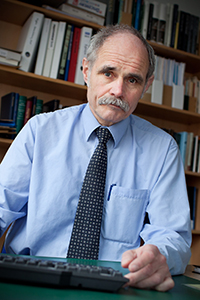NBA History of Science Seminar

Alchemical tract from the early 18th century illustrating nature’s richness.
Helge Kragh, “The Principle of Plenitude and Its Role in Modern Physics”
Statements such as “what can exist does exist” or “anything not forbidden is compulsory” frequently appear in the physics literature and in particular in connection with quantum and particle physics. They reflect an old metaphysical postulate with roots in Plato and Leibniz which since 1936 has been known as the “principle of plenitude.”
The core claim of the principle is that potential existence equals or implies actual existence. Or, if something is not forbidden by fundamental laws it must exist in the real world. In modern physics the principle is often (but wrongly) ascribed to Murray Gell-Mann who supposedly introduced the “totalitarian principle” in a paper of 1956. Plenitude-like ideas can be found earlier, for example in Paul Dirac’s 1931 argument that magnetic monopoles are not only possible but likely to exist in nature.
The talk will consist of two parts, the first of which is a general discussion of the plenitude principle in its relevant historical contexts. In the second part follows a few examples as related to objects and phenomena such as monopoles, tachyons, quarks, neutrinos and proton decay. Plenitude reasoning is far from restricted to particle physics. If time allows, examples from the recent history of cosmology and astrophysics will be included.

Helge Kragh
Helge Kragh is Professor emeritus at the Niels Bohr Institute of the University of Copenhagen and Associated Researcher at the Niels Bohr Archive. He is a renowned historian of science and the author of numerous scholarly articles and books on the history of physics, cosmology, and chemistry, including An Introduction to the Historiography of Science (1989), Dirac: A Scientific Biography (1990), Cosmology and Controversy (1999), Quantum Generations: A History of Physics in the Twentieth Century (2002), and Conceptions of Cosmos: From Myths to the Accelerating Universe (2013). His most recent book is the first ever scientific biography of the Danish physicist Ludvig Lorenz (Ludvig Lorenz: A Nineteenth-Century Theoretical Physicist).
Please note that the venue is Auditorium M at Blegdamsvej 21.
